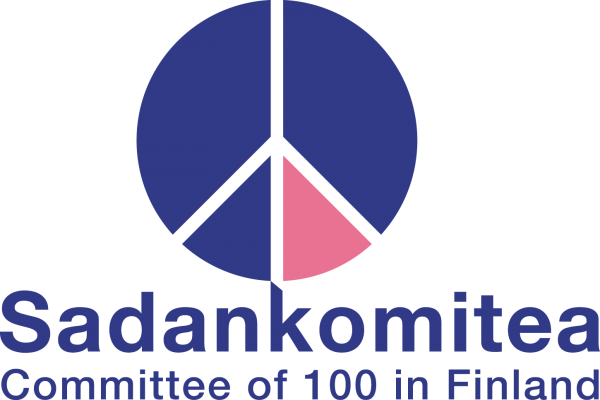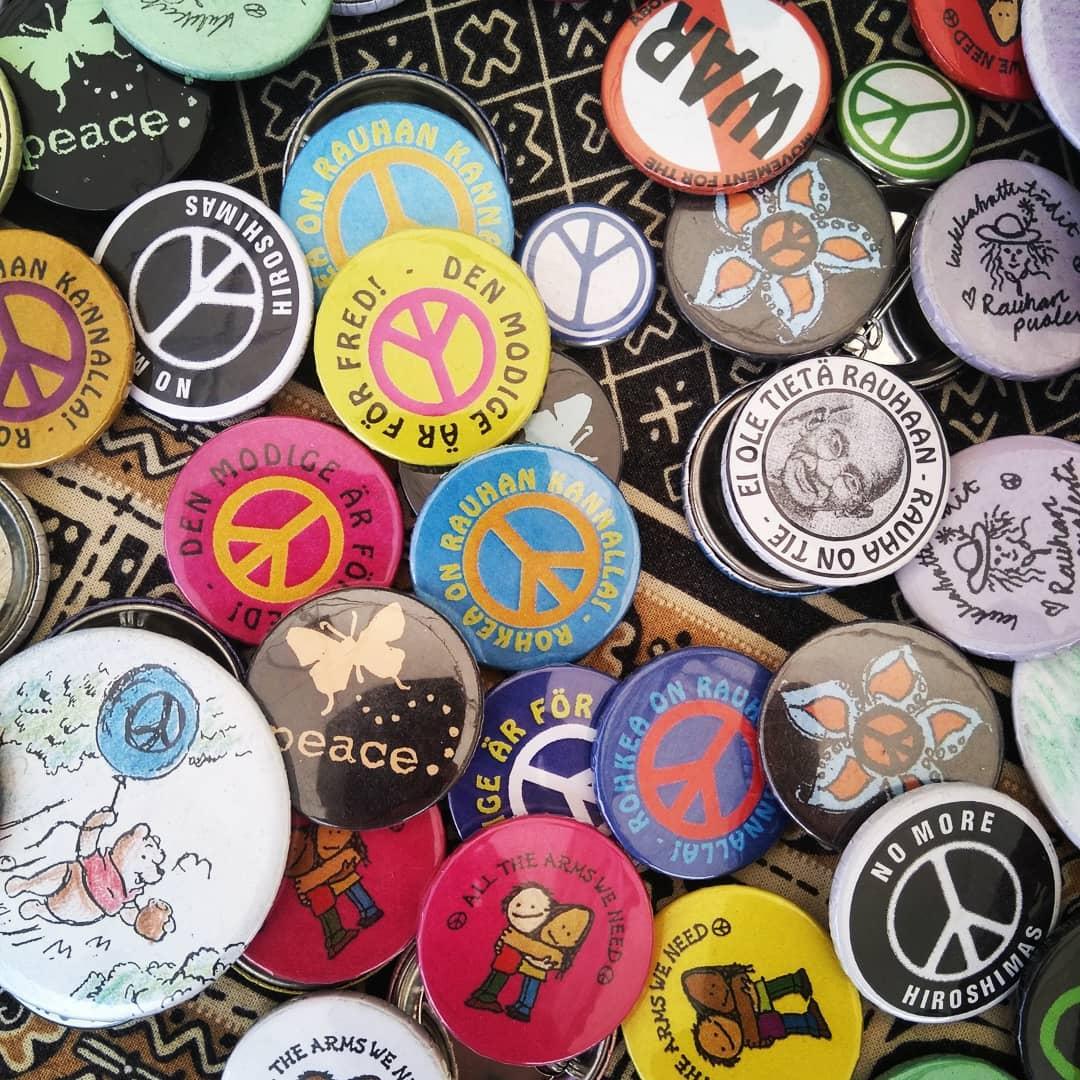Asekauppasopimuksen (ATT) osapuolivaltiot kokoontuvat Genevessä 11.-15.9. Paikalla on myös kansalaisyhteiskunnan edustajia, myös Sadankomitean pääsihteeri Anni Lahtinen. Kansalaisjärjestöjen päätavoitteena on muistuttaa valtioita, että asekauppasopimuksen tarkoitus on inhimillisen kärsimyksen vähentäminen. Sopimuksen toimeenpanoa seuraava Control Arms -kampanja vaatii, että asevientin muun muassa Jemenissä sotivaan Saudi-Arabiaan on kiellettävä.
Lue kampanjan koko tiedote alla englanniksi.
***
Control Arms
Arms Trade Treaty: Stop ‘shuffling paper’ and start saving lives
-
“Time is running out for people in Yemen, where 10,000 people have been killed, death tolls rapidly rising and a child dies every ten minutes.”
-
“We must focus on why the Arms Trade Treaty was created in the first place; to save lives and reduce suffering in the world”
States must immediately stop arms transfers that violate the Arms Trade Treaty and are killing and injuring thousands of civilians, the international Control Arms Coalition said today, as an international meeting on the Treaty begins in Geneva.
Delegates from the 92 States Parties and 41 Signatories of the ATT will attend the third Conference of States Parties in Geneva from 11-15 September to report on progress made in implementing the Treaty as well as addressing any challenges or concerns.
“Last year too much time was spent on process and shuffling paper. Meanwhile, thousands of civilians have been killed and injured as a result of irresponsible arms transfers. We must focus on why the Arms Trade Treaty was created in the first place; to save lives and reduce suffering in the world,” said Anna Macdonald, Control Arms Director.
Control Arms’ ATT Monitor, an annual report on the Treaty that was launched today, stated that 19 State Parties and three Signatories have supplied arms to Saudi Arabia since the war in Yemen began in 2015, despite overwhelming evidence that they are being used to kill and injure civilians in Yemen, in violation of international humanitarian and human rights law.
Three of the biggest suppliers are the UK, France and the USA. The UK alone has agreed arms sales to Saudi Arabia worth £3.7bn since the beginning of 2015 when the war began in Yemen.
“As the bombs rain down on civilians and the blockade imposed by the Saudi regime stop goods coming in, time is running out for people in Yemen. More than 10,000 have been killed, 20 million people are living in desperate need, including those affected by the world’s worst ever outbreak of cholera, and a child dies every ten minutes of disease and hunger,” says Radhya Almutawakel, Chairperson of Yemeni NGO Mwatana Organization for Human Rights. “The sale of weapons to Saudi Arabia for use in Yemen must stop immediately.”
Meanwhile, a delegation from Saudi Arabia will be looking to further boost their stocks of Britishmade weapons at Defence & Security Equipment International (one of the world’s largest arms fairs) taking place in London at the same time as the CSP.
“It’s very clear where the UK Government’s priorities lie,” said Anna Macdonald. “It is sending in the ‘heavyweights’ Liam Fox and Sir Michael Fallon to deliver key note speeches at the Arms Fair and help seal million pound contracts that could lead to the deaths of millions of civilians. But they have no ministerial representation at the Arms Trade Treaty Conference, where decisions made could save millions of lives.”
States Parties supplying arms for brutal crackdowns
Venezuela and the Philippines have been in and out of the headlines this year where both authorities have used weapons for brutal crackdowns on their own citizens, killing and injuring thousands.
States Parties, including Belgium, Bulgaria, France, South Korea and the UK, as well as Signatories like the USA, authorised arms sales to the Philippines in 2016.
The UK also agreed sales of military equipment to Venezuela in 2016, along with other ATT States Parties like France, Italy and Spain, and Ukraine, a Treaty Signatory.
“The Arms Trade Treaty was designed to protect human rights, but arms supplied by States Parties and Signatories are still being used to commit horrific abuses. Whether in Philippines President Duterte’s bloody ‘war on drugs’ or in the brutal conflict in Yemen, people around the world are suffering every day as a result of reckless arms transfers. There must be consequences for governments who continue to fuel human rights abuses in breach of their obligations under the treaty,” said James Lynch, head of Arms Control and Human Rights at Amnesty International.
There is evidence of the Treaty working in some contexts. No ATT States Parties have been reported to be complicit in supplying arms to Myanmar, for example, where the authorities are currently carrying out a brutal military campaign against the country’s Muslim Rohingya or to South Sudan, where a civil war has killed tens of thousands of people and displaced more than 3.5 million.
Bring arms deals ‘out of the shadows’
In many cases it is difficult to have a clear idea on which countries are carrying out irresponsible arms transfers. Only 48 out of a total of 75 annual reports for imports and exports were submitted in 2016, which is a compliance rate of only 64%. In addition, Bosnia and Herzegovina, Finland, Greece, Italy, Sweden and Uruguay chose to exclude sensitive information and Panama, Senegal and Liberia have asked for their reports to remain confidential.
“States must show more commitment to transparency and accountability; improving governance across the board is essential to enhanced security and economic development; people’s lives and livelihoods depend on it,” said Martin Butcher, Policy Advisor on Arms and Conflict at Oxfam.
ATT and the Sustainable Development Goals
This year at the ATT Conference in Geneva there will be a focused debate on the links between the 2030 Agenda’s Sustainable Development Goals (SDGs) and the ATT.
“Armed violence has uprooted more people than at any time in history with 65.6 million people forcibly displaced worldwide and obviously has a disastrous impact on global development efforts in countries like Yemen, Syria and South Sudan,” said Anna Macdonald. “Control Arms welcomes the focus on this link, but we don’t want to see huge amounts of discussion with no purpose. States must commit to concrete and targeted action which will have a tangible impact on development goals such as reducing violence against women and children, for example. And that means stopping the flow of arms which are used to carry out this violence.”
“Armed violence is leading to an unprecedented amount of suffering in the world today and we cannot and must not be complacent in Geneva this week. Decisions that are made in Geneva can save millions of lives and reduce the suffering of so many more. States owe it to those at risk to stop irresponsible arms transfers and to do everything they can to stop them immediately,” concluded Anna Macdonald.

